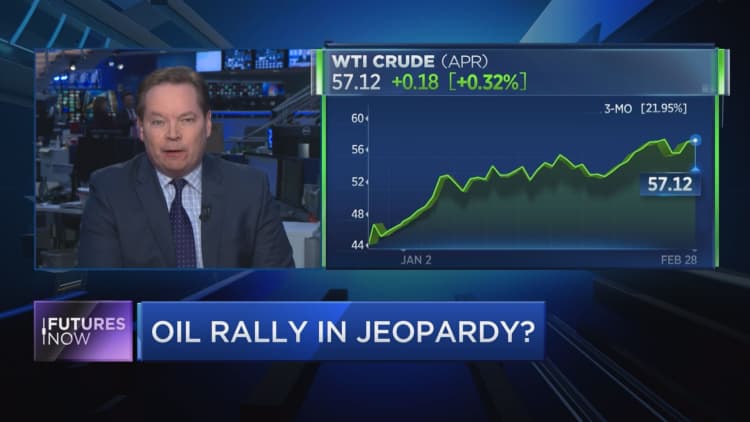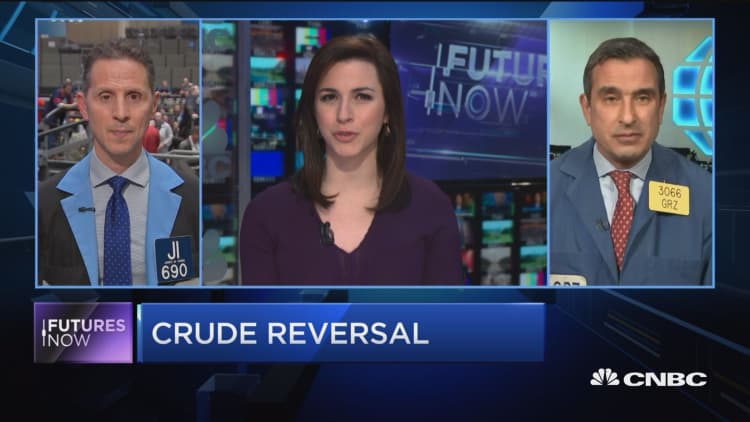Oil prices bounced on Monday from last week's losses, boosted by reports that the United States and China could soon reach a formal agreement to end a tit-for-tat trade war that has limited global economic growth.
Crude futures gave up some of their gains around midday as the U.S. stock market slumped on weak construction spending data, but the commodity rallied into Monday's price settlement.
U.S. West Texas Intermediate crude settled 79 cents higher at $56.59 per barrel, posting a 1.4-percent gain on the day. WTI earlier rose as high as $57.
International benchmark Brent crude futures rose 60 cents at $65.67 a barrel, off a session high of $66.34.
The gains come after both benchmarks posted losses during a volatile trading period last week. Brent fell more than 3 percent, while WTI dropped 2.5 percent on the week.

On Monday, Washington and Beijing appeared close to a deal that would roll back U.S. tariffs on at least $200 billion worth of Chinese goods as China pledges to make structural economic changes and end tariffs on the United States, a source briefed on negotiations said on Sunday.
"Growing anticipation of a positive outcome from U.S.-China trade talks has rendered a boost to oil prices in today's trading session," said Abhishek Kumar, senior energy analyst at Interfax Energy in London.
OPEC and its partners, known as OPEC+, will likely decide on a new output policy in June instead of during the group's April meeting in Vienna, three OPEC sources told Reuters.
OPEC and its allies are expected to extend its supply reduction pact at its June meeting, but much depends on the extent of U.S. sanctions on OPEC members Iran and Venezuela, the sources said.
Crude supply from OPEC fell to a four-year low in February, a Reuters survey found, as top exporter Saudi Arabia cut production more than it had agreed to, and as U.S. sanctions on Venezuelan oil took effect. The Reuters survey is one of several estimates ahead of OPEC's official production figures, which will be released next week in the group's monthly report.
The cuts have helped crude prices rally more than 20 percent so far this year.
In the United States, there are signs that the oil production boom of the past years may slow down.

U.S. energy firms last week cut the number of oil rigs looking for new reserves to the lowest in almost nine months as some producers follow through on plans to cut spending.
The nation's production dipped in December after surging in November, though output still exceeded earlier projections, according to the Department of Energy's first reading for the month.
Hedge funds and other money managers raised their net long, or bullish, positions on Brent crude by 15,887 contracts to 291,336 in the week to Feb. 26.
"While much of the move higher in the market has come about due to short covering, in more recent weeks we have seen fresh longs starting to return to the market, suggesting that sentiment is turning more positive," bank ING said.
But demand side pressure may put a cap on further rises.
"Refineries are now clearly winding down for maintenance ... That means softer crude off-take by refineries and softer signals from crude oil spot prices ..." chief commodities analyst at SEB bank, Bjarne Schieldrop, said.
— CNBC's Tom DiChristopher contributed to this report.

